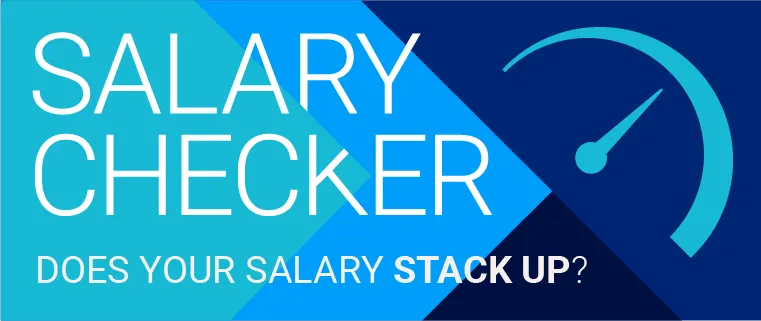How do you answer: “Tell me about yourself”

"Tell me about yourself" seems like quite an easy question. But in fact, it's more complex than you think. It's one of the most common – and intimidating – questions that is frequently asked in a job interview. Whether you’re a seasoned professional or a recent graduate, mastering this interview question is essential for success.
What interviewers are looking for with this question
- Professional background: They want to understand your career path – where you’ve been, what you’re doing in your current position, and what led you to this point in your professional life.
- Relevant experience: Employers are interested in relevant skills and professional development that match the job description and job ad.
- Cultural fit: While the focus should be on your work experience, interviewers may also be assessing whether your personal interests and achievements align with the company’s culture. This is why it’s important to be mindful of what personal details you choose to share.
- Communication skills: Your response provides an early glimpse into your communication style, clarity of thought, and ability to stay on message — all of which are important signs of a successful interview.
Familiarise yourself with variations
- Could you provide us with a brief overview of your CV or resume?
- What’s your background?
- How would you describe yourself?
- Please share something about yourself that isn’t included in your application.
- We'd love to hear more about you.
Tips for crafting your answer
1. Keep it professional, not personal
3. Structure your answer: present, past, and future
- Present: Start with your current role, highlighting your job title, skills and responsibilities. Keep your answer relevant and concise.
- Past: Provide context by discussing your previous roles. Be mindful to avoid regurgitating your resume by explaining how your experience has prepared you for the next step.
- Future: Conclude by sharing your aspirations and outlining why you’re looking for a new job.
4. Stay positive when explaining your job search
- “I didn’t get along with my boss.”
- “The work environment was toxic.”
- “Management was unprofessional and disorganised.”
- “I was frustrated with constant micromanagement.”
- “I am eager to take on new challenges.”
- “I am committed to pursuing professional growth.”
- “I am looking for a role that offers a better fit with the company’s culture.”
Three steps to answer the “Tell us about yourself” job interview question
1. Share relevant job qualifications and experiences
Don't get too personal, keep it professional at least until you've got a good read on the room. Start your answer by sharing your experiences and education that relate directly to the role you’re interviewing for. The key here is relevancy – in all likelihood, the paper-route you had when you were 15 has no bearing on your ability to succeed in this role, so don’t share your entire life story. Instead, keep your answer brief by providing your interviewer with what they want to hear – an overview of your professional background and years of experience. Only mention qualifications that support your job application.
By firstly outlining your relevant education and career history, you’re setting the scene for the interviewer by describing how you got to the position you are in today.
2. Highlight skills relevant to the position
Then review the key points of the job description and mention the relevant skills and behaviours you possess that would allow you to succeed in this particular role. Keep your answer relevant by supporting your skills and competencies with measurable examples and hard facts. This allows you to bring your skills to life with quantifiable evidence, such as the number of team members you’ve managed, the dollar value of contracts you’ve negotiated, the volume of tasks you’ve delivered in a set timeframe or the percentage of targets you’ve hit.
3. Describe how the role fits your career goals
Finally, you can share your career goals in a way that supports your application. But be careful – although it may be tempting to answer this interview question by talking about the reasons why you want to leave your current employer, this part of your answer should instead be centred around why you want the role within this new organisation. Avoid complaining about your current role and organisation at all costs. Have a positive rather than negative outlook.
By framing your answer in this context, you show your potential employer that you’re interested and enthusiastic in the role and that what you read in the job description aligns with your career plans and ambitions. Your interviewer can then understand exactly why you are sitting in front of them and are a suitable candidate for the role.
5. Include an anecdote
6. Highlight strengths and address weaknesses
- The number of team members you’ve managed
- The dollar value of contracts you’ve negotiated
- The volume of tasks you’ve delivered in a set timeframe
- The percentage of targets you’ve hit
7. Describe how the role fits your career goals
8. Speak for about one minute
9. Practice, but don’t memorise
Sample answers for “Tell me about yourself”
Interviewing for a similar role at a new company
Interviewing for a similar role in a new industry
Transitioning from an agency role to an in-house
Transitioning from an agency role to an in-house
Interviewing for a manager/leadership role
Interviewing as a recent graduate
Interviewing for a career change
For more interview advice download your copy of the Hays Interview Guide.
Search for jobs
Interview tips
How to get time off for an interview
6 ways to show you want the job
Behavioural job interview questions
Competency job interview questions
Situational job interview questions
Job interview preparation tips
Refining your job interview techniques
Three types of job interview questions
How to prepare for a job interview
Questions to ask the interviewer
Responding to "Tell me about yourself"
Answering "Why do you want to work here?"
Signs your interview went well
What to expect in a second job interview
Why do you want to leave your current job
How to answer difficult interview questions
What to wear to a job interview
The importance of cultural fit in the workplace
Check your salary
Find out if you are earning the salary you deserve with the Hays Salary Checker.
Check my salary now

